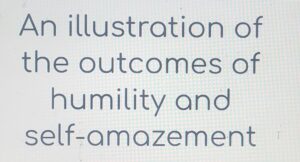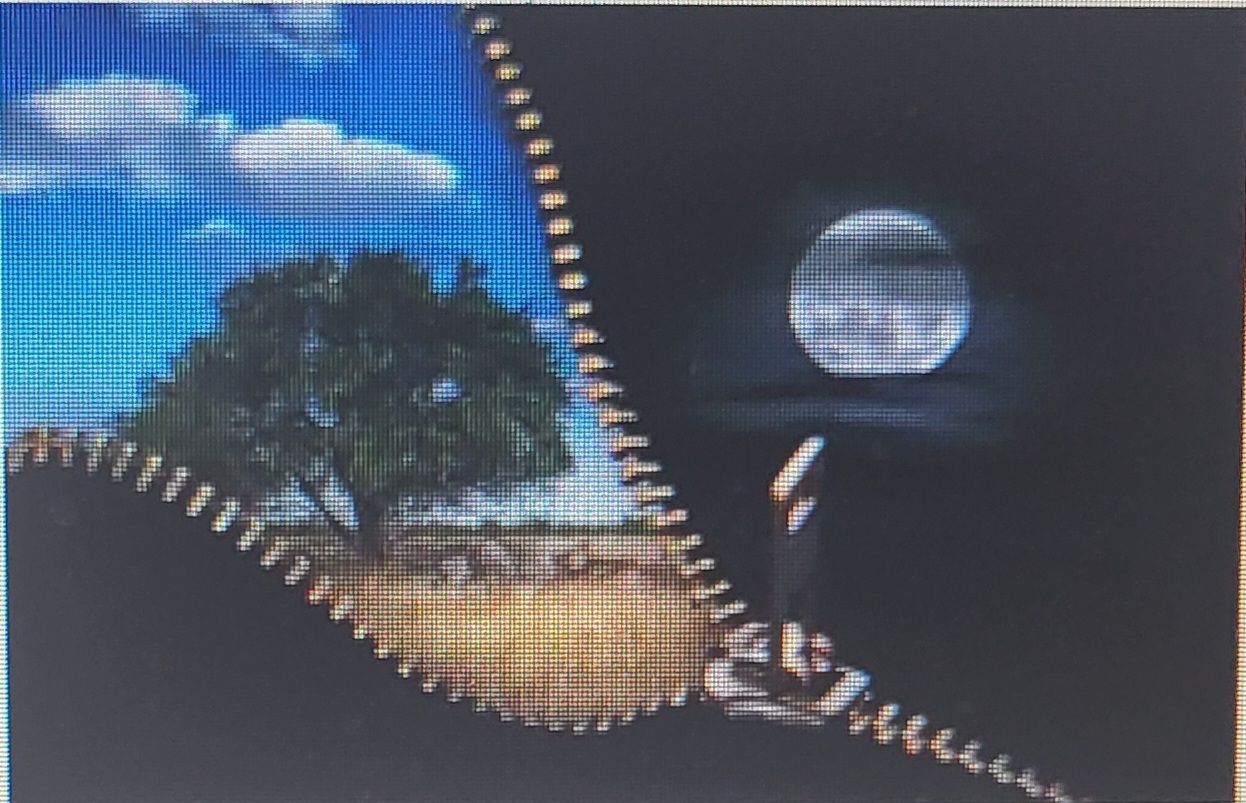In The Name of Allah, The Most Merciful, The Bestower of Mercy.
The Messenger, peace and blessings of Allah be upon him, said, “Verily ahead of you is the era of patience during which (one’s firm) adherence (to the religion) will be the reward of fifty men”. [1]
Imam Muhammad Ibn Abdil Wahhab, may Allah have mercy upon him, said: Know, may Allah have mercy upon you, that it is obligatory upon you to have knowledge of the four matters: (i) Knowledge (al – ‘ilm), which is knowledge and awareness of Allah, and knowledge of His Prophet, and knowledge of the religion of Islam with the proofs. (ii) Action upon that. (iii) Calling to that. (iv) Patiently persevering and bearing any harm encountered upon that way. The proof is the saying of Allah [The Most High]:
وَٱلۡعَصۡرِ
إِنَّ ٱلۡإِنسَـٰنَ لَفِى خُسۡرٍ
إِلَّا ٱلَّذِينَ ءَامَنُواْ وَعَمِلُواْ ٱلصَّـٰلِحَـٰتِ وَتَوَاصَوۡاْ بِٱلۡحَقِّ وَتَوَاصَوۡاْ بِٱلصَّبۡرِ
By time, mankind is in loss, except for those who truly believe and worship Allah alone, and do righteous deeds, performing that which is obligatory upon them and avoiding that which they are forbidden and enjoin one another with patient perseverance upon obedience to Allah and in facing harm and trials. [Surah Al ‘Asr] [2]
Imam Ibn Qayyim, may Allah have mercy upon him, said: Imam Ash-Shaafi’ee, may Allah have mercy upon him, said, “If all the people pondered upon this Surah, it would have sufficed them”. This affair clarifies that the fulfilment of the four affairs in this Surah will lead a person to attain the highest level of human perfection. The first affair is acquaintance with the truth, the second is to act upon the truth, the third is to teach the truth to the one who does not know and the fourth affair is to exercise patience whilst learning the truth, acting upon it and teaching. Allah mentioned these four levels in this Surah and made an oath by Time – that everyone is in a state of loss except those who believe and perform righteous deeds, and they are those who act upon the truth they know, enjoin one another to the truth whilst exercising patience in the path and being steadfast.
This is the pinnacle of human perfection because perfection necessitates that a person attain perfection himself and enable others to attain it. This is attained through rectification of the strength of one’s knowledge and action- rectification of the strength of one’s knowledge is attained by way of Iman and rectification of the strength of one’s actions is attained through righteous deeds; then enabling others to attain this perfection (i.e. by the will of Allah) through teaching, exercising patience upon this path and enjoining one another to exercise patience in the path of knowledge and righteous action. This Surah, despite its shortness, is one of the most comprehensive Suras of the Qur’an that gathers good in its entirety, and all praise and thanks are due to Allah Who revealed and assured that His Book is sufficient besides everything else – a cure for every disease and a guide to every good. [3]
It is not enough that they know the truth and exercise patience, rather they have to command, guide, and urge one another to act upon it. And when it is the fact that others besides these people are losers, it is well known that disobedience and sins blind the sound discernment (or perception, foresight) of the hearts, so they do not understand the truth as it should be and their strength of determination is weakened due to not exercising patience; rather the heart is exposed to haphazard thoughts until its understanding goes the opposite way and likewise the person’s conduct, so he perceives falsehood as truth and truth as falsehood, good as evil and evil as good. His conduct goes the opposite way- turns away from his journey towards attaining the Pleasure of Allah and the home of the afterlife (i.e paradise) and proceeds towards the residence of the futile souls that are pleased with the worldly life, satisfied with it, heedless of Allah and His signs (revelation, lessons, etc), and abandons preparing to meet Allah (i.e. by way of upright believe and righteous deeds). (I) Had there not been any other punishment due to one’s sins other than this, it would have been (enough as a) demand that one abandon this path and distance from it. And Allah’s Aid sought! [4]
Indeed, Allah placed humans in two categories – the loser and the gainer. The gainer is the one who sincerely exhorts himself with Iman and righteous deeds; sincerely exhorts the people by enjoining truth, which incudes teaching the truth and guiding to it; and enjoining patience, which also includes that he himself exercises patience. The Surah comprises of the two sincere exhortations, two characteristics of human perfection and the highest level of two types of strengths, expressed in the shortest, the most concise and clearest wording, the best preamble and the best precision in the suitable place (or subject matter).
As for the two sincere exhortations, they are the person’s sincere exhortation of himself and his brother in Islam by enjoining truth and exercising patience upon the path. As for the two characteristics of human perfection, they are the person’s self-perfection and enabling others to attain self-perfection (by the Will of Allah). As for perfection of the two strengths, the soul has two strengths and they are: the strength of knowledge and sound observation, and these two affairs are perfected through Iman; the strength of sound intent, love (for everything praiseworthy, especially love for Allah) and knowledge, and these affairs are perfected through righteous deeds (i.e. deeds carried out sincerely for the sake of Allah and in conformity with the authentic Sunnah), and this cannot be accomplished except through patience.
Therefore, there are three affairs carried out by the person and then he enjoins them on others- perfection of the strength of knowledge through Iman, perfection of the strength of action through righteous deeds, being consistent upon that with patience and commanding others with it. And by way of these three affairs, he becomes a participant and one attributed to them, teaching and calling to them. This is the absolute gain, and in estimation of whatever he misses of this gain, he incurs some loss the like thereof. And Allah’s Aid is sought and to Him we entrust all affairs! [5]
The majority of the Qur’aan commentators hold that Al-Asr (Time) is Ad-Dahr (the time period in this world) and this is the statement that carries more weight based on the sound evidences. Allah made an oath by Al-Asr (Time) due to it being the period in which moral lessons and signs occur, for indeed the passing of night and day is under the Decree of the All-Mighty, the All-Knowing (Allah)- organised to serve the welfare of the universe (and its inhabitants) based on the most perfect order and organization; alternating with one another, sometimes not much difference between them and at other times one takes from the hours of the other; the difference between the light, the darkness, the heat and the cold; the different time periods divided into generations, years, months, days, hours and what is lesser than that! These are all signs (creations) of the Lord [The Exalted] and a Burhaan [i.e. proof that clarify and distinguish between truth and falsehood in everything] from the Baraaheen [proofs] regarding Allah’s All-Encompassing Perfect Ability and Wisdom (free from all imperfections, faults, deficiencies, shortcomings).
Allah made an oath by Time and that is the period within which human beings perform deeds for which one will either receive punishment or a good recompense. He gave a notification about Time, which is the Mab’da [i.e. the beginning within which humans perform deeds] and notified the performers of deeds about the Ma’aad [the Hereafter], and that just as He was not unable to initiate the beginning, likewise He is not unable to establish the Hereafter; and that His Wisdom, which necessitated the creation of Time, the performers of deeds and their deeds, and categorized them into good and bad deeds, (i.e. deeds chosen by the person after being given free will and shown guidance through the Messengers) establishes the fact that the people are not equal, and it cannot be that the good doer will not receive a good recompense and that the evil doer will not be recompensed for his evil, and it cannot be that there will not be two groups- the gainers and the losers; but rather the human being in essence is a loser, except the one whom Allah shows mercy, guides, blesses him with Iman, the ability to perform righteous deeds himself and the ability to command others. The opposite of this person is the other one who is reduced to the lowest of the low, except those who believe (in Islamic Monotheism) and do righteous deeds, then they shall have a reward without end (Paradise).
[وَتَوَاصَوۡاْ بِٱلۡحَقِّ وَتَوَاصَوۡاْ بِٱلصَّبۡر – and do righteous good deeds, enjoin one another to the truth and enjoin one another to patience]. This leads to the station of upright leadership and strength in the religion, just as Allah says:
[وَجَعَلۡنَا مِنۡہُمۡ أَٮِٕمَّةً۬ يَہۡدُونَ بِأَمۡرِنَا لَمَّا صَبَرُواْۖ وَڪَانُواْ بِـَٔايَـٰتِنَا يُوقِنُونَ – And We made from among them (Children of Israel), leaders, giving guidance under Our Command, when they were patient and used to believe with certainty in Our Ayat (proofs, verses, lessons, signs, revelations, etc.)]. [Surah As-Sajdah. Verse 24] So, through patience and certainty upright leadership in religion is attained.
Patience is two types: Patience when facing what has decreed, such as calamities. Patience when fulfilling the divine legislated acts of worship has two aspects- commands and prohibitions. The fulfillment of commands is related to patience in intent and action [i.e. acts of obedience] and the second is related to patience in keeping away from what one intends and wants to do [i.e. persevere whilst keeping away from evil]. As for patience [when facing the calamities decreed by Allah], it is shared by both a believer and a disbeliever, a righteous person and a wicked sinner, and one is not rewarded if it is not connected to Iman [i.e sound belief] and Ikhtiyaar [i.e. the person willingly chooses to exercise patience as an act of worship devoted to Allah]. The Prophet [peace and blessings of Allah be upon him] said about his daughter (whose son was on his death bed), “She should be patient and hope for Allah’s reward”. [Saheeh Al-Bukhaaree. Number 1284]
Allah [The Exalted] says: [ إِلَّا ٱلَّذِينَ صَبَرُواْ وَعَمِلُواْ ٱلصَّـٰلِحَـٰتِ أُوْلَـٰٓٮِٕكَ لَهُم مَّغۡفِرَةٌ۬ وَأَجۡرٌ۬ ڪَبِيرٌ۬ – Except those who show patience and do righteous good deeds, those: theirs will be forgiveness and a great reward (Paradise)]. [Surah Hud. Verse 11]
Allah [The Exalted] says: [بَلَىٰٓۚ إِن تَصۡبِرُواْ وَتَتَّقُواْ – Yes, if you hold on to patience and piety]. [Surah Al Imran. Verse 125] Allah says: [وَإِن تَصۡبِرُواْ وَتَتَّقُواْ – But if you remain patient and hold on piety]. [Surah Al Imran. Verse 120]
Patience without sound belief and piety is like a bodily strength that is devoid of sound belief and piety. So the level of one’s certainty in what has been divinely legislated determines the level of patience when facing calamities decreed by Allah (i.e. a person will return to what Allah has legislated in the divine revelation regarding how to deal with calamities).
Allah [The Exalted] says: [فَٱصۡبِرۡ إِنَّ وَعۡدَ ٱللَّهِ حَقٌّ۬ۖ وَلَا يَسۡتَخِفَّنَّكَ ٱلَّذِينَ لَا يُوقِنُونَ – So be patient (O Muhammad). Verily, the Promise of Allah is true, and let not those who have no certainty of faith, discourage you from conveying Allah’s Message (which you are obliged to convey)]. [Surah Ar-Rum. Verse 60]
Allah commanded the Messenger [peace and blessings of Allah be upon him] to exercise patience and not to be like those who do not have certainty due to lack of patience, because indeed their lack of certainty is due to their lack of patience, and they fear and frighten their people. Had they attained certainty and truth, they would have exercised patience – neither fear nor frighten others. So, the one whose certainty is little, his patience will be little, and the whose patience is little will fear and frighten others. The person who has certainty and patience is self-possessed because he has intelligence and common sense, and the one who neither has certainty nor patience is lightheaded, so desires and lust fling him here and there just as the wind does with something light. And Allah’s Aid is sought! [6]
A Practice of The Companions – By Imam Al-Albaanee [may Allah have mercy upon him]
“When two men among the Prophet’s companions met, they would not depart from one another, except after one of them recited to the other:[إِنَّ ٱلۡإِنسَـٰنَ لَفِى خُسۡرٍ ][ وَٱلۡعَصۡرِ] – (By Al-‘Asr (the time). Verily! The human is in loss….(i.e. the full Surah)]. Thereafter one would give Salaam to the other].
After quoting a few other narrations and then grading their authenticity, Imam Al-Albaanee [may Allah have mercy upon him] said: In these narrations is that one gives Salaam when departing (i.e. one gives Salaams to the other when departing after meeting). The other affair we benefit (from this report) is that the companions held onto this deed and that is the recitation of Surah Al-Asr (i.e. before departing after meeting, one recites Surah Al-Asr to the other and then gives Salaam) because we (firmly) believe that they were far removed from initiating – in the religion – a newly invented act of worship as a means of getting close to Allah by way of it; rather the only reason they did this was due to something established through Allah’s Messenger [peace and blessings of Allah be upon him] – either by way of a statement of his, deed or tacit approval. [7]
Footnote (I): The Imam stated: “If a person prefers what is deficient and will eventually cease to exist, then that is either because the virtue of (the afterlife) is not manifested to him or due to a lack of desiring what is more virtuous. Both these two states are an indication of weakness in Iman, intellect, and clear-sightedness, because indeed the one who desires the worldly life- the one who gives it precedence and is eager for it, either testifies that there is what is more virtuous and everlasting, or he does not testify. If he does not testify (i.e. that the Hereafter is more virtuous and everlasting), he is completely devoid of Iman; however if he testifies (i.e. that the Hereafter is more virtuous and everlasting) but does not give it precedence, then his intellect is corrupt and he has made an evil choice for himself. These two (testimonies) are inevitable and a servant cannot escape them, because giving precedence to the worldly life over the Hereafter is either due to corruption in Iman or due to corruption of one’s intellect, and in many cases, both of them are combined (in a person)”. [8]
We ask Allah:
اللَّهُمَّ بِعِلْمِكَ الْغَيْبَ وَقُدْرَتِكَ عَلَى الْخَلْقِ أَحْيِنِي مَا عَلِمْتَ الْحَيَاةَ خَيْراً لِي وَتَوَفَّنِي إِذَا عَلِمْتَ الْوَفَاةَ خَيْراً لِي، اللَّهُمَّ إِنِّي أَسْأَلُكَ خَشْيَتَكَ فِي الْغَيْبِ وَالشَّهَادَةِ، وَأَسْأَلُكَ كَلِمَةَ الْحَقِّ فِي الرِّضَا وَالْغَضَبِ، وَأَسْأَلُكَ الْقَصْدَ فِي الْغِنَى وَالْفَقْرِ، وَأَسْأَلُكَ نَعِيماً لَا يَنْفَذُ، وَأَسْأَلُكَ قُرَّةَ عَيْنٍ لَا تَنْقَطِعُ، وَأَسْأَلُكَ الرِّضِا بَعْدَ الْقَضَاءِ، وَأَسْأَلُكَ بَرْدَ الْعَيْشِ بَعْدَ الْمَوْتِ، وَأَسْأَلُكَ لَذَّةَ النَّظَرِ إِلَى وَجْهِكَ وَالشَّوْقَ إِلَى لِقَائِكَ فِي غَيْرِ ضَرَّاءَ مُضِرَّةٍ وَلَا فِتْنَةٍ مُضِلَّةٍ، اللَّهُمَّ زَيِّنَّا بِزِينَةِ الْإِيمَانِ
وَاجْعَلْنَا هُدَاةً مُهْتَدِينَ
O Allah! By Your Knowledge of the unseen and by Your Power over creation, let me live if life is good for me, and let me die if death is good for me; O Allah! I ask You to grant me (the blessing of having) fear of You in private and public, and I ask You (to make me utter) a statement of truth in times of contentment and anger, and I ask You for moderation when in a state of wealth and poverty, and I ask you for blessings that never ceases, and I ask You for the coolness of my eye that never ends, and I ask You (to make me pleased) after (Your) decree; and I ask You for a life of (ease, comfort, tranquillity, etc) after death; I ask You for the delight of looking at Your Face (i.e. in the Hereafter) and yearning to meet You without any harm and misleading trials (coming upon me). O Allah! Adorn us with the adornment of Iman, and make us (from those who are) guided and guiding (others). [9]
اللَّهُمَّ أَصْلِحْ لِي دِينِي الَّذِي هُوَ عِصْمَةُ أَمْرِي
وَأَصْلِحْ لِي دُنْيَايَ الَّتِي فِيهَا مَعَاشِي
وَأَصْلِحْ لِي آخِرَتِي الَّتِي فِيهَا مَعَادِي
وَاجْعَلِ الْحَيَاةَ زِيَادَةً لِي فِي كُلِّ خَيْرٍ
وَاجْعَلِ الْمَوْتَ رَاحَةً لِي مِنْ كُلِّ شَرٍّ
O Allah! Rectify my religion for me, which is the safeguard of my affairs; rectify my worldly [affairs], wherein is my livelihood; and rectify my Afterlife to which is my return; and make life for me [as a means of] increase in every good and make death for me as a rest from every evil. [Sahih Muslim Number: 2720] [10]
اللّهُـمَّ رَبَّ جِـبْرائيل ، وَميكـائيل ، وَإِسْـرافيل، فاطِـرَ السَّمواتِ وَالأَرْض ، عالـِمَ الغَيْـبِ وَالشَّهـادَةِ أَنْـتَ تَحْـكمُ بَيْـنَ عِبـادِكَ فيـما كانوا فيهِ يَخْتَلِفـون. اهدِنـي لِمـا اخْتُـلِفَ فيـهِ مِنَ الْحَـقِّ بِإِذْنِك ، إِنَّـكَ تَهْـدي مَنْ تَشـاءُ إِلى صِراطٍ مُسْتَقـيم
O Allah! Lord of Jibraa’eel, Meekaa’eel and Israafeel, Creator of the heavens and the Earth, The Knower of the seen and the unseen. You judge between Your slaves regarding in that which they differ. Guide me to the truth regarding that in which there is differing, by Your Will. Verily, You guide whomever you will to the straight path. [11]
اللَّهُمَّ إِنِّي أَسْأَلُكَ الثَّبَاتَ فِي الْأَمْرِ، وَالْعَزِيمَةَ عَلَى الرُّشْدِ
O Allah! Indeed, I ask You for steadfastness in this affair (regarding sound adherence to the religion) and firm resolve to adhere to the path of guidance. [12]
اللَّهُمَّ إِنِّي أَسْأَلُكَ فِعْلَ الْخَيْرَاتِ وَتَرْكَ الْمُنْكَرَاتِ وَحُبَّ الْمَسَاكِينِ وَأَنْ تَغْفِرَ لِي وَتَرْحَمَنِي وَإِذَا أَرَدْتَ فِتْنَةَ قَوْمٍ فَتَوَفَّنِي غَيْرَ مَفْتُونٍ أَسْأَلُكَ حُبَّكَ وَحُبَّ مَنْ يُحِبُّكَ وَحُبَّ عَمَلٍ يُقَرِّبُ إِلَى حُبِّكَ
‘O Allah! I ask of you the doing of the good deeds, avoiding the evil deeds, loving the Masakin, and that You forgive me, and have mercy upon me. And when You have willed trial among the people, then cause me to die without being put to trial. And I ask You for Your love, the love of whomever You love, and the love of the deeds that bring one nearer to Your love.’” Allah’s Messenger said: “Indeed it is true, so study it and learn it.” [Sahih at-Tirmidhi 3235] [13]
[1] Sahih al-Jami 2234
[2] Translation of the “Explanation of the Three Fundamental Principles” By Shaikh Abu Talhah [may Allah have mercy upon him and his wife]
[3] An Excerpt from Miftaah Daarus Sa’adah page 61
[4] An Excerpt from Al-Jawaab Al-Kaafi 135-136. slightly paraphrased
[5] Al-Kalaam Alaa Mas’alah As-Samaa 404.
[6] At-Tibyaan Fee Aqsaam Al-Qur’aan 83-88
[7] Silsilah Al-Hadeeth As-Saheehah. Number 2648. Vol 6. pages 307-309]
[8] Al-Fawaa’id page 137
[9] https://salafidawahmanchester.com/2021/01/01/o-allaah-let-me-live-if-life-is-good-for-me-and-let-me-die-if-death-is-good-for-me/
[10] https://salafidawahmanchester.com/2020/12/29/o-allaah-rectify-my-religion-for-me-which-the-safeguard-of-my-affairs-a-tremendous-supplication/
[11] https://salafidawahmanchester.com/2025/03/25/guide-us-to-the-straight-path-an-overarching-need-of-a-lifetime/
[12] Irwaa al-Ghaleel 1/115
[13] https://salafidawahmanchester.com/2025/03/26/the-goal-is-to-leave-this-world-free-from-fitan/











